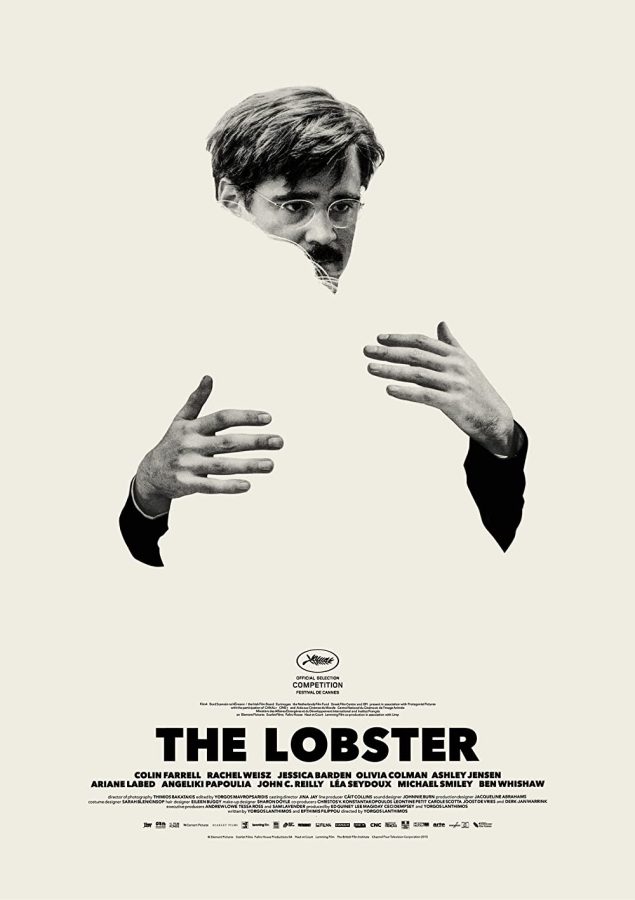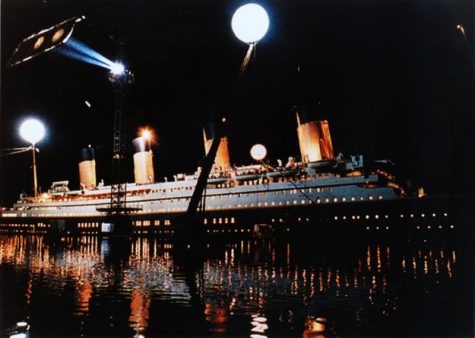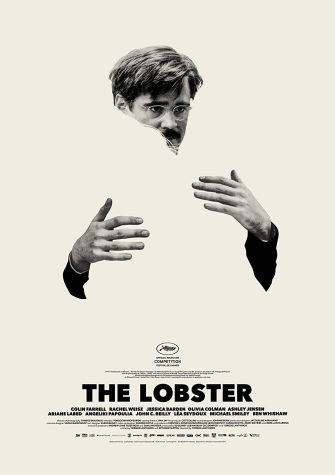“The Lobster” offers brilliant social commentary on romantic pressure
Photo Credit: Official Movie Poster via IMDb
Pictured is the official movie poster for “The Lobster.” It stars Colin Farrel and Rachel Weisz.
Valentine’s Day is coming right around the corner, and couples are looking for ways to spend time together. Pairs often go out on dates, but some like to relax and watch a flick. Romantic comedies bring couples together because they’re funny and you can turn your brain off. “The Lobster” is an odd exception that follows deep allegories on the meaning of love.
“The Lobster” plot
The film revolves around a dystopian society where citizens are obligated to find a partner in 45 days, or they turn into an animal of their choice. Yorgos Lanthimos‘ film follows David (Colin Farrell) as he attempts to get over his recent divorce and find love. As the film progresses, audiences are challenged in their perception of the idea of love.
Yorgos Lanthimos
Lanthimos is marked by absurdist style and an offbeat sense of humor. His films have been described as the “Greek Weird Wave.” Lanthimos’ films feature surreal storylines and dialogue that don’t quite seem fathomable. His Greek-produced films were made during a time when the country was facing grief due to political and economic instability.
Collider reported, “Lanthimos’s later English-language films, The Lobster and The Killing of the Sacred Deer, continue to examine the director’s specific thematic concerns, each focusing on coming to terms with the unexpected. Indeed, Lanthimos’s films are always unexpected, in plot, in characters, and in dialogue, because the world around him so thoroughly diverged from what was expected.”
Most of his movies deal with dark subjects in an irreverent manner. Most of the characters in his films appear very stiff, robotic, and dissociated from the insanity going on around them. Lanthimos’ films have a sense of emptiness because of the wide shots and dark backgrounds. Fans would say his films’ worlds lack personality. His style is grotesque and has been able to please critics for years.
Social pressure
Deadpan in nature, “The Lobster” examines modern-day relationships within society. David must find a new partner at a hotel in order to avoid being turned into an animal. In fact, he decides to be a lobster for very humane reasons. Lobsters live up to 100 years and they’re fertile. David is extremely fearful of rejection.
Lanthimos pokes fun at how superficial humans perceive love. In fact, David’s wife left him because she met someone who was better at math than he was. In the film, humans feel forced to connect with people who have the same disability or special interest. John (Ben Winshaw) suffers from a limp but fakes nose bleeds to end up with a woman who suffers from nose bleeds.
If the hotel represents society, then the anxious feeling of being turned into an animal is the pressure society faces to find a partner. In real life, people feel pressured to settle and have kids due to the forced expectations society places on them. The film explores this idea in an incredibly awkward and uncomfortable fashion.
At the beginning of the film, David forces himself onto an aggressive woman so he could leave the hotel. He doesn’t realize the harm it causes until afterward, but it’s another great example of how the film showcases the forced nature of love and the toxicity behind unhealthy relationships. As surreal as the world of “The Lobster” is, it’s not far off from reality.
Dystopian outlook
“The Lobster” exaggerates the norms humans follow in real life regarding marriage. The residents at the hotel must hunt “loners” (single people) to earn more days at the hotel to find a mate. “Loners” are ridiculed in the movie, and prejudiced for rejecting a partner.
As the film progresses, David becomes a loner and abandons the traditions of the hotel. The loners’ leader (Léa Seydoux) is just as oppressive as the hotel manager, and her anti-love spiel is just as aggressive and authoritarian. David initially believes there’s a Utopian world, but there isn’t.
“Loners” ban any sort of intimacy which creates deep feelings of pain and fear. Because “loners” aren’t allowed to show any form of affection, there’s a deeper feeling of awkwardness and fear. As the movie progresses, the cinematography gets darker and the mood becomes grimmer.
With the “loners,” David falls in love with a short-sighted woman (Rachel Weisz), which aggravates the leader of the loners. She will do anything in her power to end their feelings, and viewers can theorize it comes from a place of envy. Maybe she’s frustrated she couldn’t find love the way society did, so she takes out her radical views on those around her.
Critics may link the “loners” to the incel community. Incels are members of an online community who feel unworthy of finding love, so they adopt extreme views that attack people of the other gender who are sexually active. “Loners” have that mentality when viewing love. In fact, they isolate themselves in the woods.

Joseph Sanfilippo is an 18-year-old Senior at Colonia High School. Sanfilippo is an only child but enjoys being around family and friends. Most of his...





